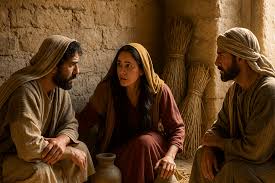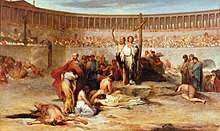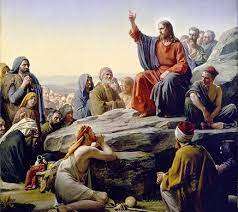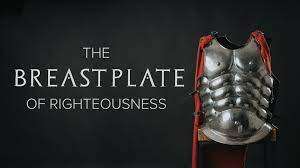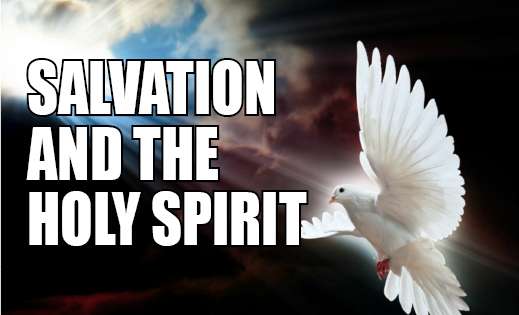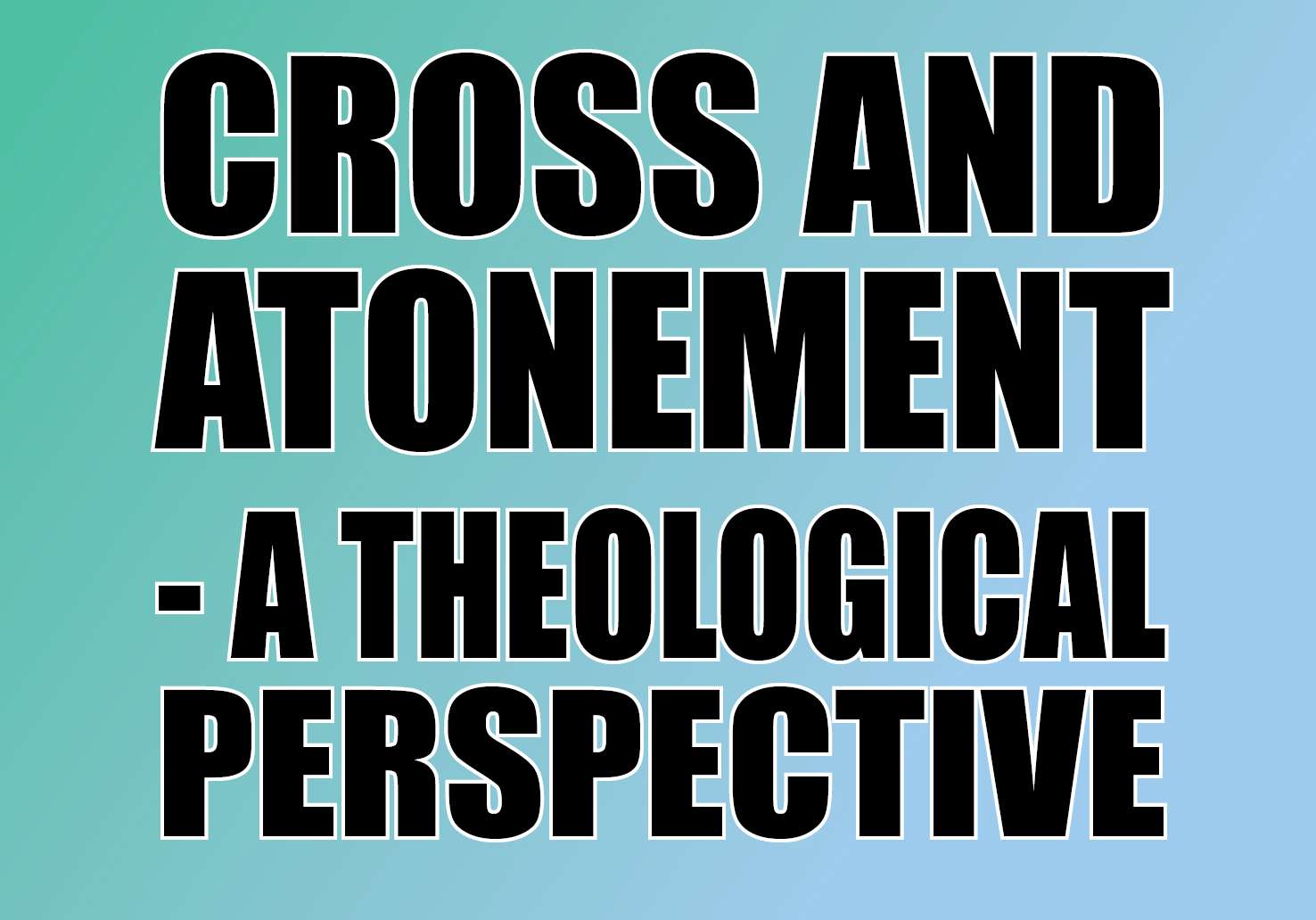

Holy Spirit and Church Life
Dr. Domenic Marbaniang
A busy church is not necessarily a living church. Having one’s calendar full of events, activities, and programs might win admiration from people, but not necessarily commendation from the Lord. To one church He said:
“I know your deeds; you have a reputation of being alive, but you are dead.” (Rev.3:2).
To diligently work is certainly vital. Christ taught us to do the work of the Father when we have opportunity to work (John 9:4). He rebuked the wicked and lazy servantwhogave unreasonable excuses for not working(Matt.25:26). Yet, it is more important for us to prioritize communion with the Lord, like Mary didsitting at His feet and listening to His message, than being busy with other things like Martha. Jesus told her:
“Martha, Martha, …you are worried and upset about many things. But only one thing is necessary. Mary has chosen the good portion, and it will not be taken away from her.” (Luke 10:41,42)
These other things might probably bring one some sense of self-importance, but anyone who stays close to the Lord’s heart knows that what is regarded as important by men is not necessarily regarded so by God. In fact, “What people value highly is detestable in God’s sight.” (Luke 16:15)
The church must never forget that communion with the Lord in the Spirit precedes community work, ministry, and mission in the world.
“He who has an ear, let him hear what the Spirit says to the churches” (Rev.3:6).
UNITY OF THE SPIRIT
Communion requires unity. The Bible celebrates unity among brethren (Psa.133:1) but rebukes disunity in the church (1Cor.1:10-13). A church may have spiritual gifts and yet be unspiritual. The Corinthian church was a tongue-speakingchurch, but it wasthoroughly carnal and childish (1Cor.3:1). It was a permissive, competitive, divisive charismatic assembly that compared and criticized preachers and was bereft of love.
“For you are still carnal. For where there are envy, strife, and divisions among you, are you not carnal and behaving like mere men? For when one says, "I am of Paul," and another, "I am of Apollos," are you not carnal?” (1Cor. 3:3-4)
Paul exhorted them to pursue love, then spiritual gifts (1Cor.13,14:1). A loveless church may have beautiful music butno real worship; it may be full of givers and martyrs but no real ministry (1Cor.13:1-3). It is the love of the Spirit that binds us together as one body of the Lord.
“Bearing with one another in love,endeavouring to keep the unity of the Spirit in the bond of peace.There is one body and one Spirit….” (Eph.4:2-4)
Paul reminded the Corinthians that they were all baptized by one Spirit into the body of Christ and were all made to drink into one Spirit (1Cor.12:13). Imagine a cup dipped into a barrel of water that drinks into it—when we are dipped into the Lord, we were made to drink into the Spirit of God.
“But he who is joined to the Lord is one spirit with Him.” (1Cor. 6:17)
Jesus’ prayer for the church was not for material prosperity or political power in the world but for unity.
“That they all may be one, as You, Father, are in Me, and I in You; that they also may be one in Us, that the world may believe that You sent Me….” (John 17:21)
But we must be careful not to eulogize unity for unity’s sake. We live in a world that eulogizes tolerance as a great virtue. However, one must not confuse tolerance with love nor think that real tolerance means to ignore sin. Love is not indifference to sin. That was the problem of the Corinthian church. It was indifferent to and unappalled by the presence of sin in its midst (1Cor.5). Probably, these elders were successful in not offending someone and maintaining some sort of “peace” in the congregation, but it was at the expense of purity and certainly to the grief of the Holy Spirit who calls us to holiness and sanctification. We are called not to mere humanistic unity, like the one near Babel Tower (Gen.11); we are called to the “unity of the Spirit.” Sincere corporate worship, fellowship, love and forgiveness towards each other, honesty, discipline, watchful prayer, and rootedness in Christ’s word are crucial towards the same (Eph.5:1-21).
LIBERTY OF THE SPIRIT
Communion also implies liberty. Where there is fear there is bondage, but God has given us “not a spirit of fear but of power and of love and of a sound mind” (2Tim.1:7). He has not given us a “spirit of bondage again to fear” but “the Spirit of sonship, by whom we cry out, “Abba, Father!” (Rom.8:15). A Christian experiences true liberty of the Spirit in the body of Christ. This liberty is edifying and transformational—it liberates us to become more like Christ.
Now the Lord is the Spirit; and where the Spirit of the Lord is, there is liberty. But we all, with unveiled face, beholding as in a mirror the glory of the Lord, are being transformed into the same image from glory to glory, just as by the Spirit of the Lord. (2Cor.3:17-18).
The church is not a social club or a spiritual theatre. It is not a place where people of similar interests meet to have a good time; nor is it aplace where people go on Sundays to watch choirs perform music and speakers give lectures. The church is God’s family, and we are all God’s sons with responsible roles and places granted by His grace in the family. Liberty of the Spirit is liberty to behold the glory of the Lord and be transformed into the image of the Son from glory to glory by the Spirit of the Lord.We must understand that, because of the Spirit of Christ within us, we can experience the liberty of the Spirit in any situation, even if we were in prison or worshipping behind closed doors in a persecuted country. A church that truly knows the liberty of the Spirit is Christ-like.
Where there is liberty there is growth and fruitfulness. A church constrained by worldly worries, torn by rivalries, andcrushed by unnecessary financial burdens is like the seed sown among thorns; it fails to spiritually grow (Mark 4:18-19). But a church that has the unity and liberty of the Spirit experiences spiritual growth and maturity, growing up “in all things into Him who is the head—Christ—from whom the whole body, joined and knit together by what every joint supplies, according to the effective working by which every part does its share, causes growth of the body for the edifying of itself in love.”
The greatest enemy of spiritual liberty is carnal religion. Carnal religion is idolatrous in nature. It replaces true spirituality with carnal, tangible regulations and misrepresents spirituality as a visible demonstration of adherence to such man-made customs. That Galatian church faced severe attacks from carnal religion. Paul reminded them:
“Standfast therefore in the liberty by which Christ has made us free, and do not be entangled again with a yoke of bondage.” (Gal.5:1)
He reminded them that they were redeemed from bondage of the law to be sons of God, they have the Spirit of the Son, they are children of promise, they are free. (Gal.4:6,7, 28-31). He longed for the Galatians that Christ be formed in them (Gal.4:18) but they were now becoming enslaved to “weak and beggarly elements” (Gal.4:9), “regulations—“Do not touch, do not taste, do not handle,” which all concern things which perish with the using—according to the commandments and doctrines of men” that “have an appearance of wisdom in self-imposed religion, false humility, and neglect of the body, but are of no value against the indulgence of the flesh” (Col.2:20-23).
The conflict that the Christian faces is not between the Law of Moses and the laws of the nations or the physically “clean” and “unclean” things. The conflict that the Christian faces is between the flesh and the Spirit (Gal.5:16-17) and the only solution to the conflict is walking in the Spirit (Gal.5:16,25) in the communion, power, comfort, and guidance of the Spirit. Truth frees and the Spirit is the Spirit of truth (John 16:13).
PURITY OF THE SPIRIT
The Holy Spirit is the Spirit of holiness (Rom.1:4) and He does not tolerate sin in the Church. An early glimpse into this truth is given in Acts 5 where a couple, Ananias and Saphira, are struck dead by God for attempting to deceive the Holy Spirit by lying to the apostles (Acts 5:1-10). Church life and the Holy Spirit are one; therefore, one cannot sin against the church without also sinning against the Holy Spirit.
“Do you not know that you are the temple of God and (that) the Spirit of God dwells in you? If anyone defiles the temple of God, God will destroy him. For the temple of God is holy, which (temple) you are.” (1Cor. 3:16-17)
The Spirit is the guarantee of our salvation, guide unto all truth, governor of our decisions, and giver of all spiritual gifts in the body. Whether it is mission work, doctrinal decisions, or church discipline, all is through the Spirit and with the Spirit (Acts 13:2; 15:28). But it is not uncommon to see churches fall into sin and turn the house of prayer into a den or robbers. Just because God does not instantly punish sin as he did in Ananias and Saphira’s case does not mean that He does not or will not punish sin. He gives “time to repent” (Rev.2:21; Rom.2:4).
Therefore, as the Holy Spirit says: "Today, if you will hear His voice, do not harden your hearts as in the rebellion…”(Heb.3:7,8)
“But exhort one another daily, while it is called "Today," lest any of you be hardened through the deceitfulness of sin. For we have become partakers of Christ if we hold the beginning of our confidence steadfast to the end” (Heb 3:13-14)
We are only partakers of Christ if we hold our first confidence firm “to the end”, if we “continue in the faith, grounded and steadfast” (Col.1:23). People who “despise the church of God” and dishonors the Lord’s bodyend up becoming weak and sick, some even dying (1Cor.11:22,30). It is better to be chastened and disciplined by the Lord than to be condemned along with the world (1Cor.11:32). The goal of discipline is holiness.
“God disciplines us for our good, that we may share in his holiness.” (Heb.12:10).
But, when someone fails to respond with repentance, Christ comes and fights against them with the sword of His mouth (Rev.2:16). He destroys them by sickness and death (Rev.2:22,23). These are not the words that people might like to hear, but this is what the Bible says. These may not be the picture of Jesus and the Holy Spirit that people have become used to, but this is the picture given to us in the Scriptures. If we sow to the flesh, we will of the flesh reap corruption; if we sow to the Spirit, we will of the Spirit reap everlasting life (Gal.6:7-8).
“For God did not call us to be impure, but to live a holy life. Therefore, he who rejects this instruction does not reject man but God, who gives you his Holy Spirit.” (1Thess. 4:7-8)
“The grace of the Lord Jesus Christ, and the love of God, and the communion of the Holy Spirit be with you all. Amen.” (2 Cor.13:14)

